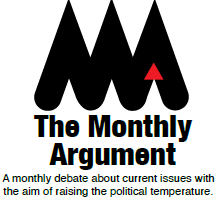Australia’s Federal Election last weekend has led to a hung Parliament. Three rural Independent candidates seem likely to decide whether Julia Gillard’s Labor Party will stay in Government, or whether Tony Abbott’s Liberal Party-led coalition will take over, only three years after former Prime Minister John Howard led it to defeat after thirteen years in office. While one Independent is already fantasising about a unity Government in which Labor and Liberal MPs sit in the Cabinet, the current rejection of parties and fetishisation of Independents is a rejection of real politics, and a backwards step for Australia.
There is no doubt that Australians, like many people in the Western world, have been badly served by their politicians, and this has led to the power vacuum which allows the Independents to pretend that what they offer us is politics. Gillard overthrew the elected Prime Minister, Kevin Rudd, in an internal ALP coup in June, and called the early election a few weeks afterwards. When people complained that the elected Prime Minister had been dumped in an undemocratic manner, they were met with the scornful response that “We have the Westminster System, stupid!”. Such a reply ignores the undemocratic nature of that system, especially in the modern style of politics where presidential-style campaigns replace parties standing on platforms designed to advance to interests of their supporters.
Rudd shouldn’t be mourned as a lost democrat, however. He is a bland bureaucrat who has been expertly removing politics from government, whose previously high popularity ratings plummeted after he backed down on an emissions trading scheme, after labelling global warming as the “great moral challenge of our generation” (pdf file) while in Opposition. He had appeared to stand for something after attempting to change the way Australia’s miners were taxed; a proposal no-one in Australia had heard of until it was a recommendation of a tax review released in May. While the opposition of miners and right-wing media allowed Rudd to pose as a man of the people who merely wanted Australians to have a fair share of the riches generated by Australia’s mining boom, it’s interesting to note that this was a top-down proposal, not one demanded by the Australian people and certainly not one arising from the clash of ideas in political debate. It was a technocratic solution to a technocratic problem, and the disconnection between government and people was demonstrated when the government planned a $38 million TV ad campaign – the idea that a network of political activists in the Labor Party should use their community connections to sell the idea of a major new government policy was never even considered, because such networks don’t exist any more.
Rudd was dumped when the Labor Party panicked as his approval ratings dropped to merely comfortably ahead of the Liberals’ Tony Abbott. Gillard took over in June and immediately announced changes to the mining tax, called an election in July, and Australians voted in August.
This brings us to our hung parliament. Since it’s been clear that the three rural Independents will decide who takes power, a barrage of anti-political sentimentalism has erupted. Earlier this week on the ABC TV network’s Q and A program, one of the Independents, Tony Windsor said “one of the good things that will come out of a hung parliament is that a private member will be able to introduce legislation and not be shut down by the government of the day using their numbers”. No-one challenged him with the idea that a government has been elected and has a right to govern because of people’s votes.
Tony Oakeshott is another of the three Independents. His ridiculous idea of a unity government has already been mentioned. His anti-political “unity” ideas go further than that though. Today he told the “AM” program on ABC radio he wanted to talk “less about sides, I mean if we can get rid of this red and blue language, it’s more about what do we want from this Parliament and engaging the communities of Australia in public policy”. The idea that people want different things from Parliament, that politics is about the clash of those interests and desires, and that public policy isn’t simply a place for experts to work out the “best” solution, but about deciding who wins and who loses, seems to have escaped him.
Of course it would be naive to blame these Independents for the way in which their anti-political message is received. Ever since the ALP government of Bob Hawke and Paul Keating gutted the union movement, cut real wages and destroyed the ALP as a mass party in the 1980s, politics in Australia has been a game of pretending that all Australians share the same interests, and that conflict is divisive and unnecessary. Indeed, Hawke won power on the idea of “consensus” and the slogan “Bringing Australia Together” (which was cribbed from Richard Nixon). Consensus sounds pretty, but the trouble is, of course, that anyone who decides to fight for their rights can be painted as disruptive, rather than legitimately advancing their own interests. This gives those who already have power a huge advantage in hanging on to it.
What the Independents propose is not politics, but an undemocratic sham. Democracy isn’t pretty, it isn’t clean and it isn’t anything to do with pretending that sides don’t exist. Politics in Australia won’t be healthy again until people realise their needs and wants clash with the needs and wants of others, and we need to compete to work out who gets what they want. Until people grasp this most basic fact, we’ll be left in the hands of bland technocrats who resent the demands of ordinary people, occasionally tempered with pious witterings about how fighting is really nasty.


Recent Comments